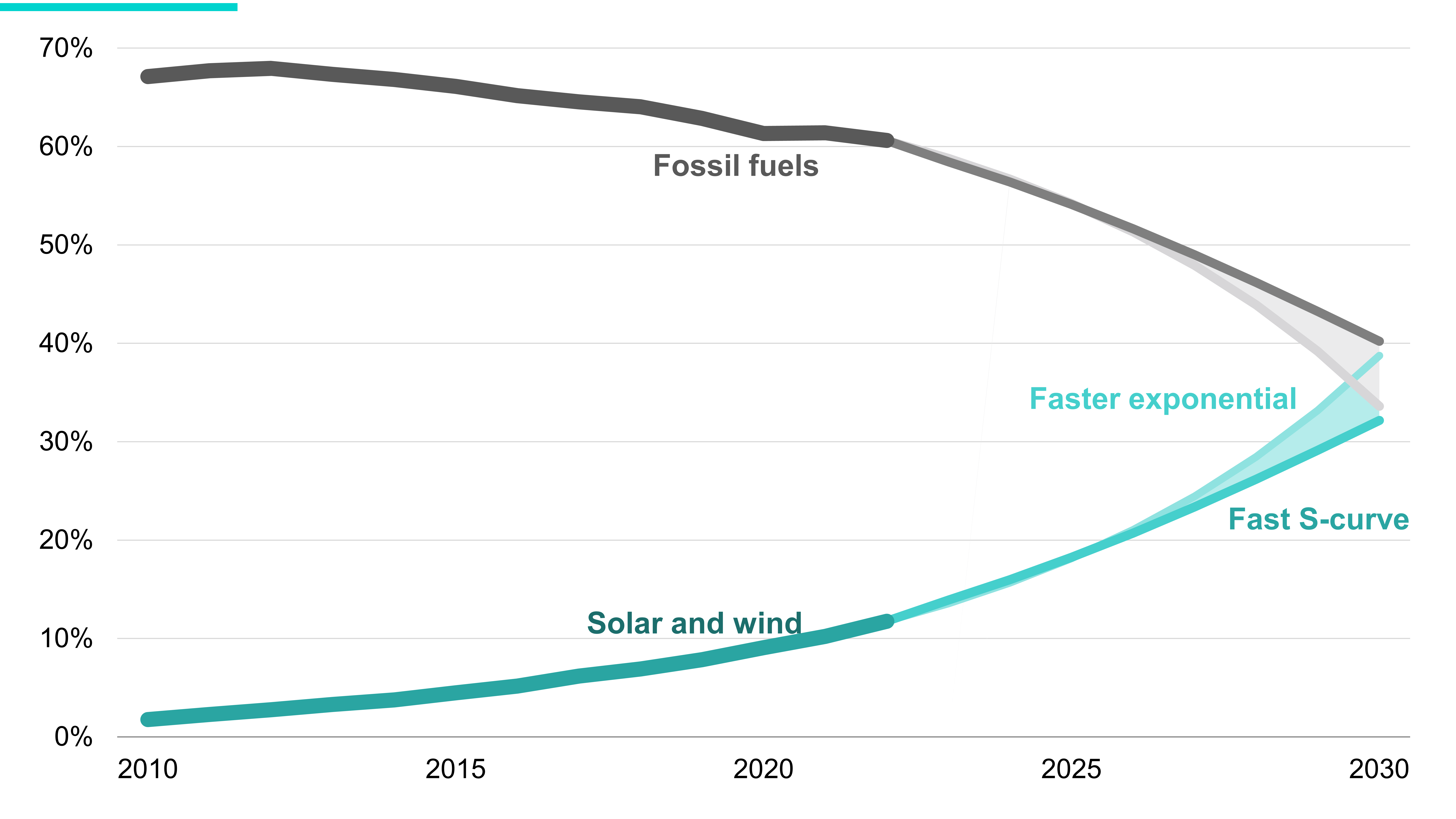
Report | 2023
X-Change: Electricity
On track for net zero
In partnership with the Bezos Earth Fund, Global Optimism, and Systems Change Lab, RMI is pleased to present the first in a series of reports analyzing the exponential growth of renewable energy technologies globally. The series demonstrates why and how major areas of the energy system, from electricity and electric vehicles to hydrogen and heat pumps, are achieving further market penetration and getting us closer to global climate goals, faster than many realize.
In X-Change: Electricity, RMI’s Kingsmill Bond, Sam Butler-Sloss, Amory Lovins, Laurens Speelman, and guest author Nigel Topping, former High Level Climate Champion, make the case that solar and wind generation are on an exponential path which will lead to disruption of the electricity sector this decade.
Solar, wind, and batteries have been following a typical path for new technology. Learning curves lead to falling prices lead to rapid growth in new capacity, which leads to change in the generation mix on an S-curve. New solar and battery capacity, policy targets, the momentum of change, and the logic of S-curves all point to continued exponential growth in solar and wind generation for the rest of this decade at 15%–20% a year.
Along with learning curves, superior economics, energy security, climate necessity, and local pollution remain a powerful combination for change in the global electricity sector. Furthermore, this analysis shows that solar power, the cheapest energy source in history, will halve in price by 2030.
Despite those who say insurmountable barriers to the energy transition are everywhere, growth keeps happening. While barriers are specific and local, solutions are generic and global and will continue to overwhelm resistance to change. As a result, fast growth will lead to a tripling in solar and wind generation by 2030 while faster growth will mean a quadrupling in generation, to produce more than 14,000 terawatt hours (TWh) and overtake fossil fuel supply.
But this is a call to action, not a moment to sit back. Around the world, countries, in partnership with the private sector, need to build out grids, change permitting laws, scale up flexibility solutions, improve regulatory and market systems, and speed up deployment in the Global South.
Global share of electricity generation by source

Source: Energy Institute, RMI forward
Learn more about this report and complementary research from our partners at Bezos Earth Fund and Systems Change Lab by viewing the press release here.
For media inquiries, please contact Marissa Gantman at mgantman@rmi.org.